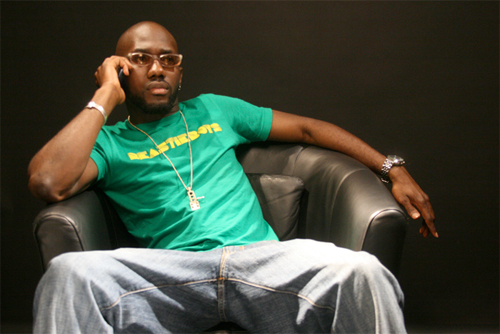
One of the most influential people in music today is a man you’ve probably never heard of. Its not your fault if you haven’t, Mo B. has almost as many alias’ as he has artists under his wing, and he has successfully positioned himself as the Chicago Renaissance’s man behind-the-scenes. Mo. B aka Mo. Billionaire aka Mo. B Necessary aka Moses aka The Manifestor is an artist manager, brand manager, consultant, and co-founder of the management and production company, The Movement Worldwide, and its online component, Wedonotfollow. His talent roster includes: Shala, Hollywood Holt, Mic Terror, Ace Watkins, Low B, Million $ Mano, Skyler, and visual artists Seven Spoon, and Hebru Brantley. He was at ground zero with Low B and Diplo in Hollertronix when they gave the Indy-hipster kids their first taste of black urban party rocker beats mashed up with electro. He cut his teeth in talent management by signing Chicago’s own Qualo to Universal Records, and is considered by some to be the bedrock of the New Chicago movement.
For all the grandiosity of his company branding: “We are the movement, but we do not follow. Everyone follows us,” and his individual magnanimity, “I came to this Earth as the chosen one to to part the C’s [the coasts] and set the people [Chicago] free, ” you’d never know it by talking to Mo. He’s as real as they come. I was lucky enough to catch up with Mo B. in Los Angeles for an exclusive Retrospective interview.
TR: From the outside, it appears as if you’ve been positioned as a behind the scenes, mastermind-ish sorta character–the Manifestor, maybe? Care to define that for us so writers can stop writing things like, mastermind-ish?
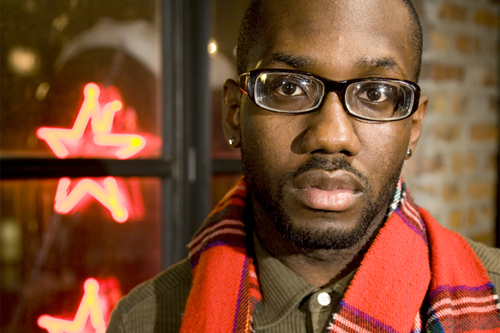
Mo B: I manage artists, but I’m an artist myself. And my art is how I manage and market artists into the world. So, for lack of a better word, I usually call myself a brand manager. I have people get excited about the things I bring to life. To manifest is to display or show a quality. If that’s the art of manifesting something, then I must be a Manifestor, right? How cool is it that I manifest things, so of course I’m going to manifest a word that doesn’t exist and make it exist, and make it real. It sums up what I do, in itself.
TR: We are big fans of guys like you: self-mogulvated types who realize their gifts early on, hustle, and innovate themselves into job descriptions too unique to squeeze into a resume. You studied economics in college, did you ever consider a more traditional path? If you did, can you spare an anecdote giving us the hows and whys you strayed off and into your current trajectory?
Mo B: First of all, I gotta say ‘self-mogulvated,’ that’s fresh. I like that, I see you doing the same thing as me there: ‘Manifestor,’ ‘Self-Mogulvated,’ I gotta use that. Yeah, I studied Econ at the University of Chicago, but really, I wanted to study Radio Broadcasting–but they didn’t have that. So, I was like, Ill do Marketing: they didn’t have that either. So the closest thing I could get to Business was Econ. So I was like, “ok, Ill do that.” I also had a passion for music. When I was in college, Shala was in a group called Qualo. They got really big in Chicago, and I was doing a lot of street and radio promotion for them. So, I’ve always been really into music just from growing up promoting my brother’s band. Shala’s my brother, by the way. And so Econ was what I did during the day, and promoting Qualo was what I did at night. Then I started hypin’ other DJs, Low B, came into the picture and it just took off from there.
TR:When most people think Hip Hop, it’s typically East, West, and more recently, South. Its been like that for a little while. What’s taken Chicago so long? Granted, the city has produced plenty of talent over the years. Why does it seem like the city is all of a sudden boiling over with young talent? Punk and New Wave was definitive New York in the late seventies and early eighties. Grunge and Seattle defined the early nineties. What are you guys up to in Chi Town?
Mo B: There was a time when Chicago had all record labels going down Michigan Ave–The Magnificent Mile, the big row that goes straight through our downtown area. There were labels that had buildings set up all along the Magnificent Mile, and they closed their offices and went off to New York or LA, and so what we were left with was no resources. So our artists ran to these parent companies in the other big cities–Common, Kanye, even Shala, for that matter. But that’s changed now. The shortys out here (in Chicago) they don’t care. The New Chicago as we coined it, when I say we, “The Movement” coined the New Chicago. They aren’t looking for any approval from LA or NY. Actually, it’s cool to not have approval from them. What that means then is, I’m going to stay in Chicago. I’m going to perform for my homies in Chicago.
“The Internet has given people access to echo what Chicago is doing at home. People can now come in from wherever and voyeur. And when we got windows–hey, they’re watchin’ us. Ok, then we’re gonna give them a song and a dance.”
TR: How much of Chicago’s rising star is attributable to Web 2.0? What technologies and subsequent strategies do you personally employ in getting the personal brand’s of your artist’s out there?

Mo B: We been using MySpace, the social networks, and all that regular stuff. Aside from that, and what we’ve gotten really good at is reaching out with bloggers. A lot of those people they became our homies because they were people just like us, except their art was writing. And they had a passion for music and they like what my guys were putting out. So we’d give them stuff, and it wasn’t like promotion, it was like these guys saying, “this is dope and the world needs to hear about it.”
TR: The artists who are coming up: Kid Sister, Mano, Holt, and the like, appear to be banding together, using one another as resources, and restructuring the way artist, labels and managers do work. As a manager, what changes are you seeing in the dynamic between those three forces: talent, management, and label?
Mo B: The Movement, in its inception, when we created it, was as a multimedia management and production company. It didn’t follow the traditional, we manage you, we find a publicist for you, model We were like, “we’re going to have the publicist in-house, and we’re going to have the booking agent in-house.” It’s a one-stop shop, is what it is. But we’re not a record label, we can partner with a distributor and put it out. Now you’ve got record labels offering these artists these 360 deals, now they want to take a piece of an artist’s tour money, and a piece of everything. Basically, labels want to do what managers have done, historically. Now, you have artists that control their own mode of distribution. Or, your manager and artist make partnerships that can control their own distribution. Now you have these big labels coming down and crumbling, and at the same level as the artists. And Myspace, for lack of a better phrase, could be called the ‘new label’. You have these digital distribution sites that allow you to make money. You don’t even need the record stores any more.
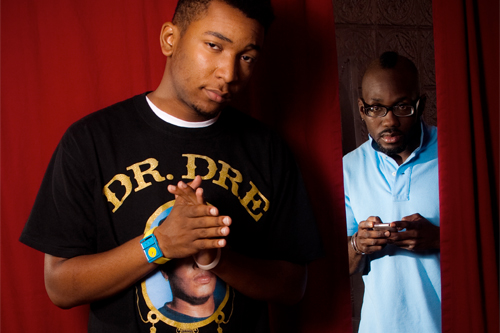
Photo Credit: Allison Glenn
Previous Post: The Web’s Finest Filler: Fresh Elevator Music From the Editors at The Retrospective
Next Post: Theophilus London – This Charming Tour
Tags: Chicago · Culture · Music · RetroTalk7 Comments




 ShareThis
ShareThis

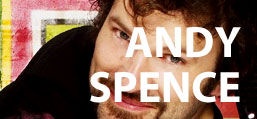
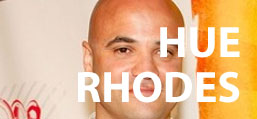
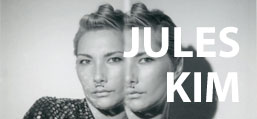
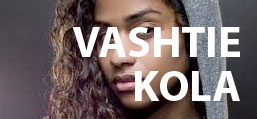
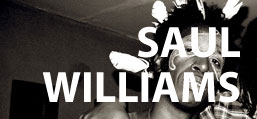
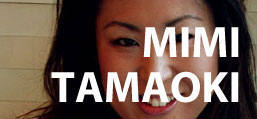

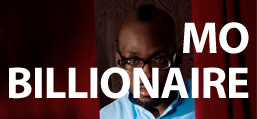
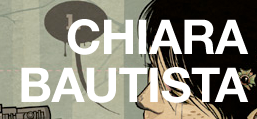
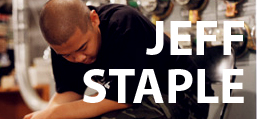
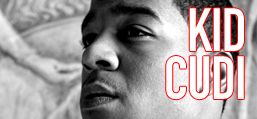


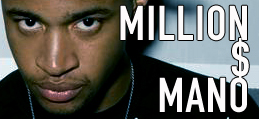
7 responses so far ↓
[…] and I gotta say the interview is too potent to read once. So read it slowice (slow/twice). Cick here. Co-sign: The […]
Mo B is the truth!
I definitely feel what he’s saying about how it’s better to keep everything In-House to limit negative influence that can have an effect on an artist financially. He also made another key point and that was the overall evolution of the “new industry” and where it’s headed. The power in this industry has been given back to the independents– not to the greedy record label execs. He said it best “You have these digital distribution sites that allow you to make money. You don’t even need the record stores any more.” He is just a perfect example of what I would like to sharpen my skills as a “brand manager” and measure up to, one day.
HAha. Absolutely Necessary.
Keep it classic! The truth is in the “Chi” and I wish for more aritst/organizations like the Movement to keep progressive and share the connective knowledge. Can you imagine if we all build collectively? Intense…
[…] Read full article HERE. […]
[…] Billion Dollars Check out this interview with the Movements Mo Billionaire from TheRetrospective.com. I had the chance to hang with him during CMJ last year, where this pic […]